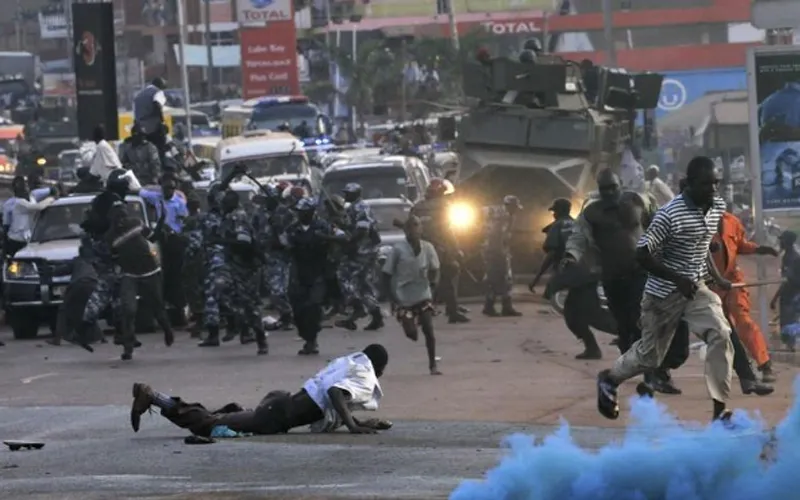“This means that the casual workers are the most hit category of people during COVID-19 lock down in Lira diocese,” the report details in part.
The Church officials in the report seek to shed a light on the “cruel, inhuman and degrading treatment,” which they say is mostly perpetrated by the security personnel during COVID-19 lockdown.
Other atrocities include sexual violence against young girls and women, also committed by the security personnel, the report says. Sexual violence was also committed by hostile category of human persons such as street kids and men, according to the report.
There has also been a reported excessive use of force by the police and military when implementing curfew hours, the report states.
“Many people interviewed reported that Uganda Police force and Uganda people defense beat and arrest civilians during COVID-19. Lockdown,” the JPC officials say in the report, adding that access to health care and protective material like face mask and sanitizers during COVID-19 lockdown was so limited by the local people in the community since many of them were not aware of COVID-19 pandemic.
(Story continues below)
The report also highlights inadequate food supply to the local population among the inequalities that were experienced during the COVID-19 lockdown.
“Most of the shops were locked up and small businesses were stopped hence the unemployment of the majority of people,” the report details, adding that unemployment especially among the rural dwellers who earn their living through doing some small business was also experienced.
The Church officials report that no measures were taken to address human rights violations and abuses by any government authorities.
“The community members could not report some of these incidences to any of the government authorities since some of these authorities were also reported to have been part of the violators of their rights,” they explain in the report shared with ACI Africa.
In their set of recommendations, the Church leaders propose that a joint advocacy by both CSOs and religious leaders be formed to address the human rights violations that were committed.
They also propose that individuals who committed human rights violations be traced and held accountable for their actions.
Additionally, they call on the Ugandan government to compensate the victims of alleged human rights abuses.
“The government of Uganda must provide reliable and adequate health information to all concerning COVID-19,” the officials say, and further call on the civil society organizations in the East African country to form a joint advocacy group that addresses the plight of the vulnerable people.
They add, “Uganda police and Uganda people’s defense force should embark on training their officers on human rights and the rule of law. Religious leaders should also team up to advocate for the plight of the community members.”
Civil society organizations, the report recommends, should also participate by conducting more of the fact findings regarding human rights violations or abuses in regards to COVID 19 lockdown.
Agnes Aineah is a Kenyan journalist with a background in digital and newspaper reporting. She holds a Master of Arts in Digital Journalism from the Aga Khan University, Graduate School of Media and Communications and a Bachelor's Degree in Linguistics, Media and Communications from Kenya's Moi University. Agnes currently serves as a journalist for ACI Africa.








